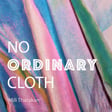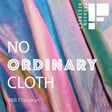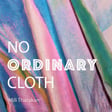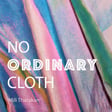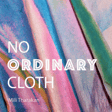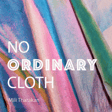
Ep 6. AI for Zero Waste Fabric, Sustainability and Traceability in Textile Factories with Gilberto Loureiro
On this episode of the 'No Ordinary Cloth' podcast, we welcome Gilberto Loureiro, the co-founder and CEO of Smartex, an innovative startup leveraging AI and machine learning to transform the textile industry and modernise it's factories.
Gilberto draws upon his life experiences, growing up in a family where everyone worked in the textile business and witnessing the substantial wastage and outdated practices in factories. This became his motivation to set up Smartex - a company building an eco-system of solutions to bring textile factories into the 21st century, eliminate waste, and enhance traceability and sustainability. They are truly revolutionising and shaping the future of textile factories.
He talks about the challenges faced by startups and shares lots of valuable resources and advice for others who might be building a startup. He highlights the importance of mentors, being humble and enjoying the work that you do to be successful.
Furthermore, Gilberto elaborates on the sector's future, identifying technology, shorter orders, increased automation, and reduced human dependence as primary factors leading the charge. Our discussion unpacks the enormous potential AI and machine learning hold for not just improving efficiencies but also for combating the significant sustainability issues within the textile industry.
Connect with Mili Tharakan
Insta: @noordinarycloth
Cover art: Photo by Siora, Photography on Unsplash
Music: Inspired Ambient, Orchestraman
